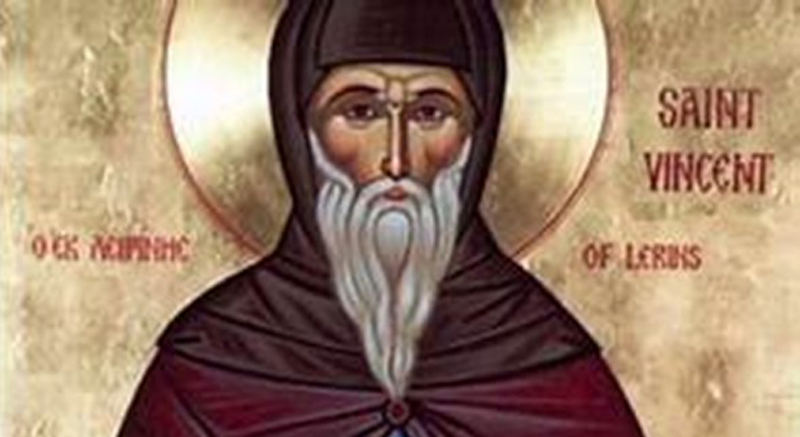(5th century)
Little is known of the life of Vincent of Lérins, but his work is renown. He was known for his eloquence and knowledge. He was of noble birth and once was a soldier but became a monk in the south of France.
In about 434, Vincent authored his famous work the Commonitorium. Written under the pseudonym Peregrinus the Commonitorium offered a guide to orthodox teaching and included his famous maxim, the Vincentian Canon, by which he hoped to be able to differentiate between true and false tradition: quod ubique, quod semper, quod ab omnibus credituni est (“what has been believed everywhere, always, and by all”). He believed that the ultimate source of Christian truth was Holy Scripture and that the authority of the Church was to be invoked to guarantee the correct interpretation of Scripture.
Augustine wrote of prevenient grace and expanded to a discussion of predestination. A number of monastic communities took exception to the latter because it seemed to nullify the value of asceticism practiced under their rules. John Cassian felt that Augustine’s stress on predestination ruled out any need for human cooperation or consent.
Vincent was suspected of Semipelagianism, a doctrine of grace advocated by monks in and around Marseilles in Southern Gaul after 428. It aimed at a compromise between the two extremes of Pelagianism and Augustinism and was condemned as heresy at the Second Council of Orange in 529 AD after more than a century of disputes. Whether he actually held that doctrine is not clear as it is not found in the Commonitorium. It is also possible that Vincent held to a position closer to the Eastern Orthodox position of today, which they claim to have been virtually universal until the time of Augustine, and which may have been interpreted as Semipelagian by Augustine’s followers.
Vincent upheld tradition and seemed to have objected to much of Augustine’s work as “new” theology. He shared Cassian’s reservations about Augustine’s views on the role of grace. In the Commonitorium he listed theologians and teachers who, in his view, had made significant contributions to the defense and spreading of the Gospel; he omitted Augustine from that list. Some commentators have viewed Cassian and Vincent as “Semiaugustinian” rather than Semipelagian.
Adapted by A.J. Valentini from: Online, C. (n.d.-b). St. Vincent of Lerins – Saints & Angels. Catholic Online. Retrieved May 18, 2021, from https://www.catholic.org/saints/saint.php?saint_id=2006
